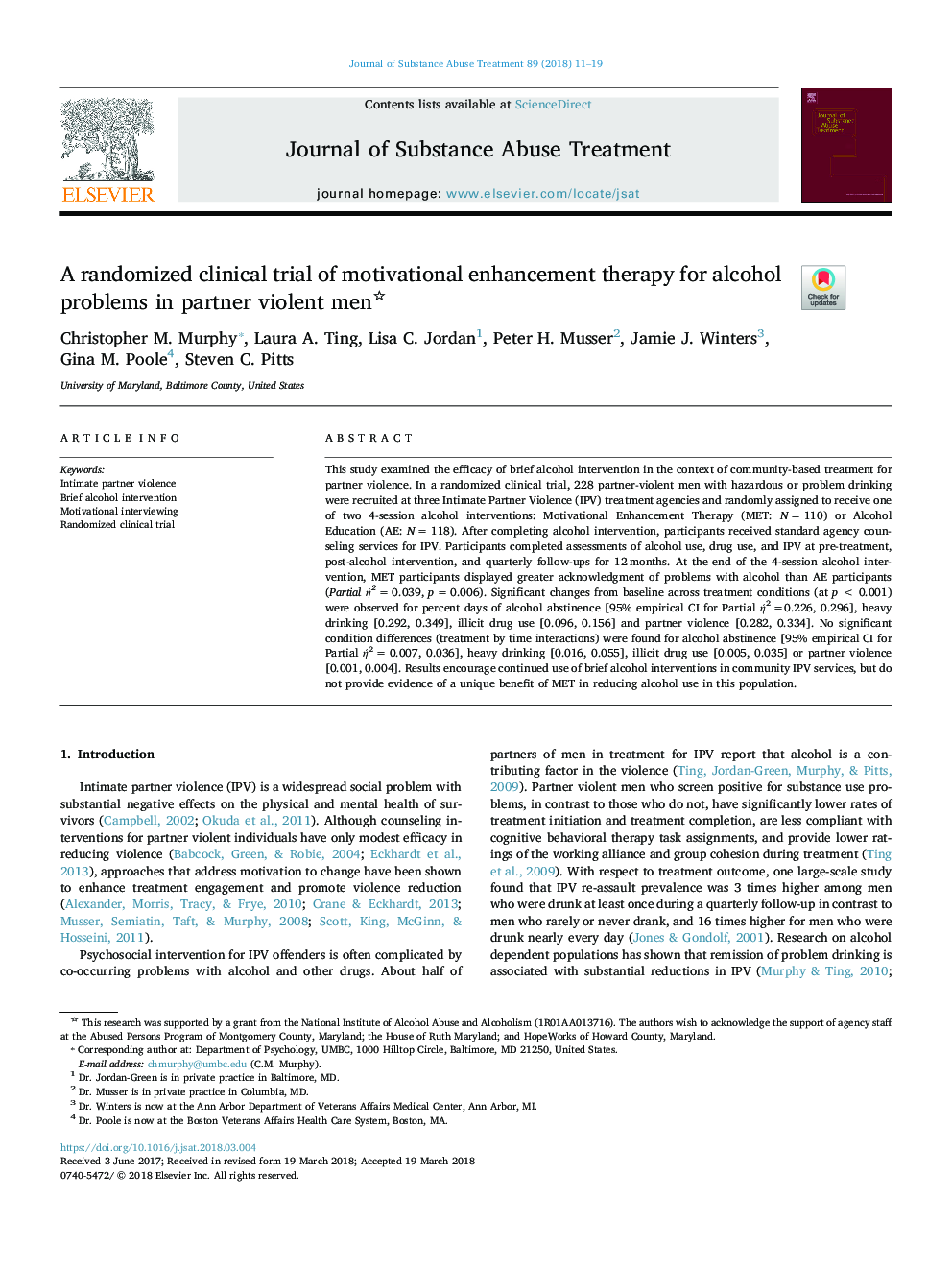| Article ID | Journal | Published Year | Pages | File Type |
|---|---|---|---|---|
| 6801627 | Journal of Substance Abuse Treatment | 2018 | 9 Pages |
Abstract
This study examined the efficacy of brief alcohol intervention in the context of community-based treatment for partner violence. In a randomized clinical trial, 228 partner-violent men with hazardous or problem drinking were recruited at three Intimate Partner Violence (IPV) treatment agencies and randomly assigned to receive one of two 4-session alcohol interventions: Motivational Enhancement Therapy (MET: Nâ¯=â¯110) or Alcohol Education (AE: Nâ¯=â¯118). After completing alcohol intervention, participants received standard agency counseling services for IPV. Participants completed assessments of alcohol use, drug use, and IPV at pre-treatment, post-alcohol intervention, and quarterly follow-ups for 12â¯months. At the end of the 4-session alcohol intervention, MET participants displayed greater acknowledgment of problems with alcohol than AE participants (Partial ή2â¯=â¯0.039, pâ¯=â¯0.006). Significant changes from baseline across treatment conditions (at pâ¯<â¯0.001) were observed for percent days of alcohol abstinence [95% empirical CI for Partial ή2â¯=0.226, 0.296], heavy drinking [0.292, 0.349], illicit drug use [0.096, 0.156] and partner violence [0.282, 0.334]. No significant condition differences (treatment by time interactions) were found for alcohol abstinence [95% empirical CI for Partial ή2â¯=â¯0.007, 0.036], heavy drinking [0.016, 0.055], illicit drug use [0.005, 0.035] or partner violence [0.001, 0.004]. Results encourage continued use of brief alcohol interventions in community IPV services, but do not provide evidence of a unique benefit of MET in reducing alcohol use in this population.
Keywords
Related Topics
Life Sciences
Neuroscience
Biological Psychiatry
Authors
Christopher M. Murphy, Laura A. Ting, Lisa C. Jordan, Peter H. Musser, Jamie J. Winters, Gina M. Poole, Steven C. Pitts,
